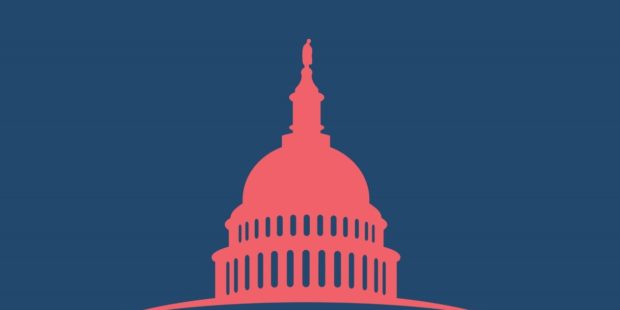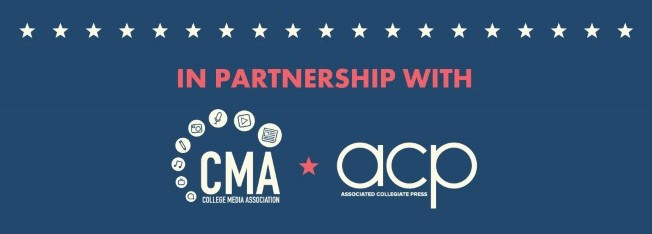
By Hazel Becker
With the SPJ21 Journalism Conference in the rear-view mirror, SPJ now looks ahead to next year’s version of the annual gathering of members and fellow journalists, scheduled for Oct. 28-30, 2022, in Washington, D.C.
Planning for that conference, in conjunction with the College Media Association and Associated Collegiate Press, will begin in earnest in December, when SPJ’s Conference Planning Committee begins to meet weekly, according to new SPJ President-Elect Claire Regan, who chairs the committee. “Planning the 2022 conference will be a team effort between CMA, ACP and SPJ,” Regan wrote in an email.
Regan, new SPJ President Rebecca Aguilar and Secretary-Treasurer Ivette Davila-Richards, met with the SPJ DC Pro Chapter board during its Sept. 30 regular board meeting via Zoom, to talk about the Society board’s goals and priorities for the coming year. The DC Pro board emphasized its goal to work with the national organization to help ensure a great experience for all who attend the 2022 conference in its hometown.
National and chapter leaders alike included collaboration to produce the 2022 SPJ conference as a high priority for the coming year.
Aguilar said the DC Pro Chapter would have one or two representatives on the conference planning committee and encouraged chapter members to begin thinking now of ways to make the event memorable. The national organization looks to the local chapter to be their “boots on the ground” in D.C. to plan the conference, she said. “I can’t wait until you guys come and say, ‘Look what we’ve got’” for conference ideas, she told chapter leaders on the Zoom meeting.
Looking back and ahead
Top-level data on session logins during the all-virtual SPJ21 Journalism Conference, which SPJ headquarters staff provided to Regan, show that special events drew the most attendees. The conference was to be a hybrid event, with in-person attendees onsite in New Orleans. A surge in the Delta variant of the coronavirus that causes COVID-19 led to cancellation of the in-person portion shortly before the Sept. 2-4 conference began.
Conference registrants were game for getting into the New Orleans spirit even so – nearly 150 of the 365 individuals who logged into the conference website at any time during the programming and special events checked out the online activities presented as New Orleans Night. Also attracting a high number of log-ins was a brown-bag lunch and “info share” for first-time attendees and new members, scheduled for just before the educational programming began.
Other popular programs were the interviews with the new Fellows of the Society and the three super-sessions on objectivity, identity and representation in the media, and a look back at media coverage of the attacks on Sept. 11, 2001, with more than 100 unique log-ins each. Instructional programs were among the break-out sessions with the highest numbers of attendees, with “How to Amplify and Diversify the Voices in Your Journalism” and “How to Find Sources and Stories” drawing the highest audiences (103 and 100 unique log-ins, respectively). “Freelancing 101” was next, with 94.
“Considering the challenges of producing a conference during a pandemic – no matter the format – SPJ21 was a success,” Regan said in an email interview. SPJ Executive Director John Shertzer agreed, saying it “looks like people really enjoyed the event.”
For Shertzer, the first take-away from SPJ21 is that “we’ve learned how to put on a virtual event.” The 2020 version, planned years in advance for being held in D.C., also had to pivot to being an online-only event due to COVID-19 restrictions and recommendations about indoor gatherings. He noted that more than 400 people registered for the SPJ21 conference and that 365 of them attended sessions. Challenges remain, however, including how to keep online participants involved all the way through to the end of the conference, he said.
Shertzer and Regan both said that next year’s conference could be completely different. In addition to planning a hybrid event, offering both online-only and in-person registrations, the SPJ executive director said, “Next year will be more collaborative. We will have partners, so we have to coordinate with them on the schedule and the flow.”
The three groups have agreed to plan their own sessions, which will run concurrently, he said. Registrants for any of the three conferences will be able to attend any of the others’ sessions. “ACP and CMA were excited that the students would have access to our sessions,” he said. SPJ’s challenge, he added, “will be trying to cater to all our members, so they will need to be accessible to students but also good learning experiences for professionals.”
Regan noted that the 2022 conference won’t be called SPJ22 because of the collaboration with the student media groups. “A new name has yet to be determined,” she said in an email.
Those things are important, but looming is whether the pandemic will have run its course and large gatherings return to most people’s comfort zones. If not, “a bigger strategic question is, what’s the long-term impact that not having the opportunity to get together with others, meet and network, and get to know each other will have on a membership organization like ours, where relationships are key to the experience,” Shertzer said.
Hazel Becker, a DC Pro Chapter member, was one of three delegates from DC Pro to the SPJ convention held during the SPJ21 conference online. She said the virtual conference and convention — which is limited to delegates who are conducting Society of Professional Journalists business — was good, but lacked the zest that comes with customary in-person meetups, planned or by happenstance, at traditional in-person conventions.

